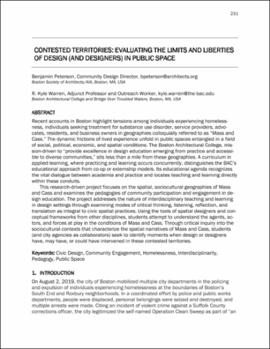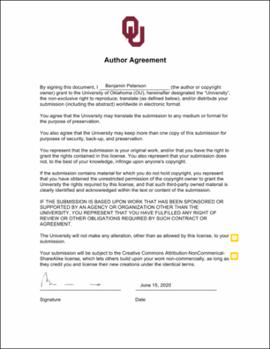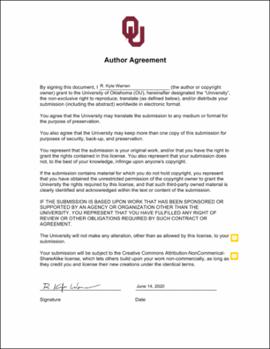| dc.contributor.author | Peterson, Benjamin | |
| dc.contributor.author | Warren, R. Kyle | |
| dc.date.accessioned | 2022-03-23T20:44:59Z | |
| dc.date.available | 2022-03-23T20:44:59Z | |
| dc.date.issued | 2022 | |
| dc.identifier.citation | Peterson, Benjamin and R. Kyle Warren, "Contested Territories: Evaluating the Limits and Liberties of Design (and Designers) in Public Space," in Person, Angela M., Anthony Cricchio, and Stephanie Z. Pilat, eds. 2022. Proceedings of Schools of Thought: Rethinking Architectural Pedagogy, Norman, Oklahoma, March 5-7, 2020. University of Oklahoma Libraries: ShareOK. | |
| dc.identifier.uri | https://hdl.handle.net/11244/335073 | |
| dc.description | This paper was presented at the 2020 Schools of Thought Conference hosted by the Christopher C. Gibbs College of Architecture at the University of Oklahoma. | |
| dc.description.abstract | Recent accounts in Boston highlight tensions among individuals experiencing homelessness, individuals seeking treatment for substance use disorder, service providers, advocates, residents, and business owners in geographies colloquially referred to as “Mass and Cass.” The dynamic frictions of lived experience unfold in public spaces entangled in a field of social, political, economic, and spatial conditions. The Boston Architectural College, mission-driven to “provide excellence in design education emerging from practice and accessible to diverse communities,” sits less than a mile from these geographies. A curriculum in applied learning, where practicing and learning occurs concurrently, distinguishes the BAC’s educational approach from co-op or externship models. Its educational agenda recognizes the vital dialogue between academia and practice and locates teaching and learning directly within these conduits. This research-driven project focuses on the spatial, sociocultural geographies of Mass and Cass and examines the pedagogies of community participation and engagement in design education. The project addresses the nature of interdisciplinary teaching and learning in design settings through examining modes of critical thinking, listening, reflection, and translation as integral to civic spatial practices. Using the tools of spatial designers and conceptual frameworks from other disciplines, students attempt to understand the agents, actors, and forces at play in the conditions of Mass and Cass. Through critical inquiry into the sociocultural contexts that characterize the spatial narratives of Mass and Cass, students (and city agencies as collaborators) seek to identify moments when design or designers have, may have, or could have intervened in these contested territories. | |
| dc.language.iso | en_US | |
| dc.relation.ispartof | 2020 Schools of Thought Conference | |
| dc.relation.uri | https://hdl.handle.net/11244/335058 | |
| dc.rights | CC BY-NC-SA | |
| dc.rights.uri | https://creativecommons.org/licenses/by-nc-sa/4.0/ | |
| dc.subject | civic design | |
| dc.subject | community engagement | |
| dc.subject | homelessness | |
| dc.subject | interdisciplinarity | |
| dc.subject | pedagogy | |
| dc.subject | public space | |
| dc.title | Contested Territories: Evaluating the Limits and Liberties of Design (and Designers) in Public Space | |
| dc.type | Article | |
| dc.description.peerreview | Yes | |
| dc.identifier.doi | 10.15763/11244/335073 | |
| ou.group | Christopher C. Gibbs College of Architecture | |



